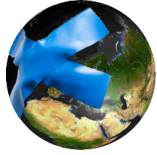Students and the Internet censorship problem

Zack Whittaker has taken a few days off to “get his head together”, so in the meantime his best friend, Elliot Harrison, has stepped up to the firing squad to cover this week.

Internet censorship is control or suppression of the publishing or accessing of information on the Internet. The legal issues are similar to offline censorship, and the controversy will naturally erupt once a government steps in.
So I'm on a website the other day and I notice an advert down one of the side banners stating: "No clean feed - Stop Internet censorship in Australia". Censorship of any kind isn't something I think about very often. I'm a citizen of a "democracy" (though as I get older, I have learned this is a rather loose term). Despite this, censorship is something, which I consider to be somebody else's problem, and if I'm not affected then it doesn't bother me. Having said that, I've done some research and the UK and the US (amongst others) are countries where restrictions are in place as to the free flow of this kind of information.
In the UK, this manifests itself in the form of a service named "Cleanfeed", partially funded by British Telecoms which, as the UK network of phone lines, keeps the web flowing. British ISP's pass all of the traffic through this filter, which uses data provided by the Internet Watch Foundation. Pages are red flagged if they are believed to contain child abuse media, and when such a page is found, the system creates a 404 page error rather than delivering the content. This system however, is far from perfect.
Naturally this is met with positive response; we don't want anything like that in our wires.
The US adopts a similar Internet restriction, though the restrictions are a little more intense. 1996 saw the passing of the Communications Decency Act, which heavily restricted the access to online speech available to be viewed by a minor. However free speech activists managed to remove much of the act, leaving only the bare bones in court.
This act is supported by the Children's Internet Protection Act whose aim is to deter online child groomers by requiring that schools and libraries install a predetermined Internet filter - included in this is access to social networking sites. Again, a necessary solution to a worrying problem.
This censorship is not just here though, as it's all over the place. I see likely, infringed rights a student may have over the online sources which are available to them. It is something, which at first glance, seems to.
There are certain countries which are on the Reporters Without Borders "Enemies of the Internet" list. This list is currently thirteen strong. Within this the censorship levels are categorised as from lowest to highest: "pervasive", "substantial", "nominal", "indirect", and "watchlist". Many of the censorship's refer to anything which may show the hosting government in a distasteful light. In some countries, violations of these restrictions can result in direct individual retaliation and even prolonged imprisonment.
Censors have a massive impact on students' research and knowledge, especially in the countries on the "Enemy" list the world over. We are all aware that the majority of the time, one of the first ports of call for research is the good old web. Such strict censorship dramatically reduces the amount of and availability of online resources available to academics, particularly history, social policy and political study students. This may also mean they are dealing with outdated material which only darkens the academic world they live in.
The Internet is a future gateway to a greater understanding of the world we all inhabit, and such censorship is restricting the development of the Internet into a world wide pot of information available to all. A shared understanding of some of the basics of democracy needs to be injected into these censors.
Keep paedophiles off the net for nobody to see but keep academia on for everyone. Your thoughts?
Update (22/12/08): Zack Whittaker: I'd just like to issue an unreserved apology to the ONI (OpenNet Initiative), which does not advocate or sustain an "Enemies of the Internet" list. The link was wrong, and the ONI and RWB should not be considered "as one" in any respect or consideration. This was brought to my attention and has now been rectified, but keen to stress this article was written by an external writer, of whom also apologises for the mistake.